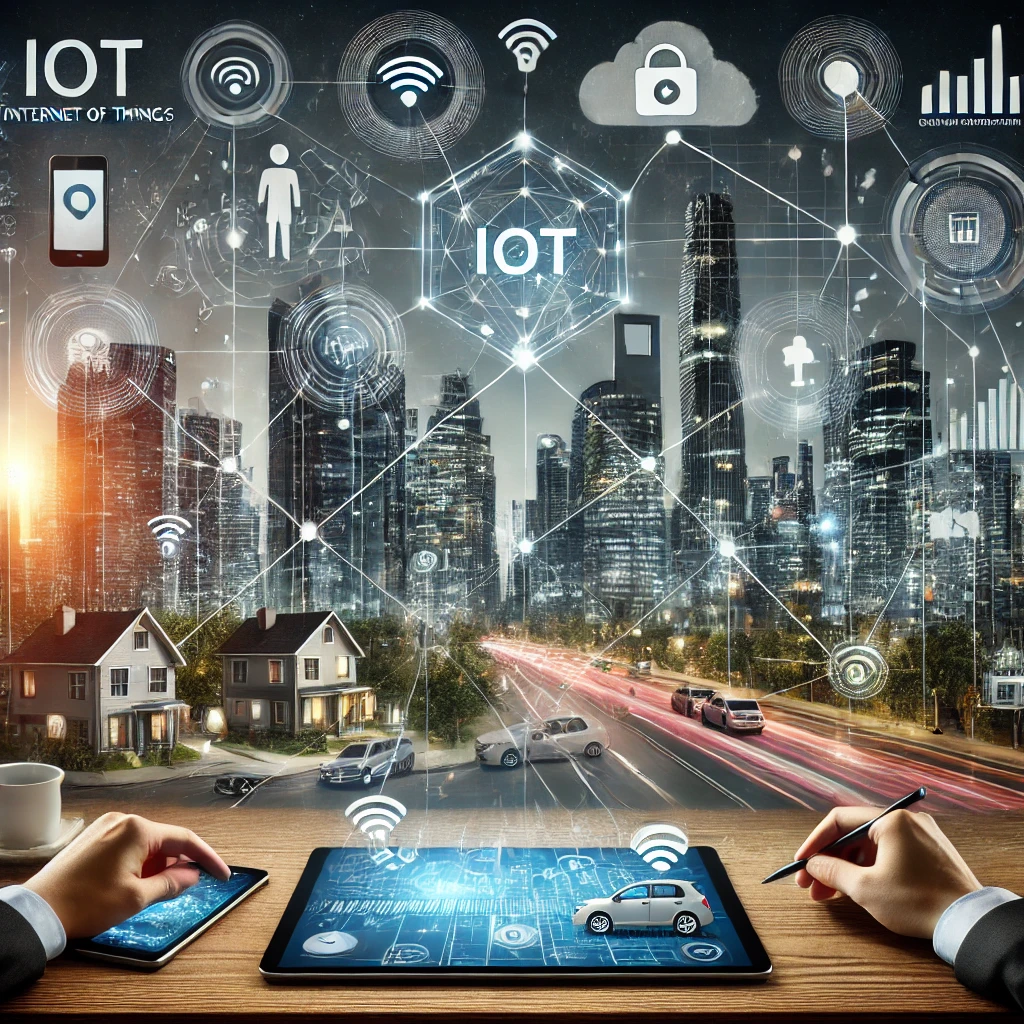
How IoT is Transforming the Way We Live and Work
The Internet of Things (IoT): An Overview
The Internet of Things, or IoT, is revolutionizing the way we interact with the world around us. It refers to the network of interconnected devices, sensors, and systems that communicate and share data with each other. This growing network is changing how we live, work, and even how businesses operate. But how exactly is it impacting us? Let’s dive into the key areas where IoT is making waves.
How IoT is Revolutionizing Industries
From manufacturing to healthcare, IoT is revolutionizing industries. By collecting real-time data and automating processes, businesses are able to enhance efficiency, reduce costs, and increase productivity. The manufacturing sector, for example, uses IoT to monitor equipment and predict failures before they occur. This predictive maintenance can save companies millions of dollars by preventing costly downtime.
IoT in Healthcare: A Life-saving Innovation
In healthcare, IoT is enabling remote patient monitoring, smart medical devices, and health-tracking wearables. This technology is not only saving lives but is also improving the quality of care patients receive. Imagine a smart wristband that sends real-time data about your health metrics to your doctor—this is now a reality.
Best Smart Home Gadgets to Simplify Your Life
Smart home technologies have been one of the most visible impacts of IoT in our daily lives. From voice assistants like Amazon Alexa and Google Assistant to smart thermostats and lights, these devices are making our homes smarter and more efficient. But what are the best gadgets you should consider adding to your home?
Top Smart Home Gadgets for the Modern Home
Here are some of the best smart home gadgets that are transforming our everyday living:
- Smart Thermostats: Control the temperature in your home remotely, making it more energy-efficient and comfortable.
- Smart Security Cameras: Enhance your home security with real-time surveillance and remote access.
- Smart Plugs: Turn any regular appliance into a smart device and control it from your phone.
- Robot Vacuums: Clean your floors effortlessly with the help of AI-powered vacuums that do all the work for you.
AI Tools for Daily Life
Artificial intelligence (AI) is another game-changer when it comes to everyday life. From improving the accuracy of smart assistants to automating tasks, AI is everywhere. But how are these innovations impacting us on a day-to-day basis?
The Latest Innovations in AI and Their Real-Life Applications
AI tools for daily life range from voice-activated devices to self-driving cars. One of the most exciting applications is in the realm of personal assistants. Whether it’s Siri, Alexa, or Google Assistant, these AI-powered devices can help manage tasks, set reminders, or even shop for you. AI is also being used to predict consumer preferences, making online shopping more personalized than ever before.
5G and Its Impact on Connectivity
5G technology is the next step in connectivity, offering faster speeds and greater reliability than ever before. This advancement is crucial in the world of IoT, as it allows devices to communicate in real time without delays. Imagine being able to download a full-length movie in seconds or enjoy lag-free video calls, all thanks to 5G. But how does it truly impact our daily lives?
Top 5G-Enabled Devices You Need to Know About
With the rise of 5G, many devices are now supporting this groundbreaking technology. Some of the top 5G-enabled devices include:
- 5G Smartphones: Enjoy ultra-fast download speeds and low latency with 5G-enabled phones.
- 5G Routers: Bring the power of 5G directly to your home for lightning-fast internet access.
- 5G Laptops: Work remotely with seamless connectivity, even in areas with limited network infrastructure.
Sustainable Technology Innovations: A Step Towards a Greener Future
As the world faces growing environmental challenges, sustainable technologies are becoming increasingly important. IoT is playing a pivotal role in making technologies more eco-friendly. Smart energy systems, such as solar-powered IoT devices and intelligent grid systems, are helping reduce energy consumption and minimize waste.
Practical Uses of Sustainable Technologies in Everyday Life
There are numerous practical applications for sustainable technologies in our daily lives. For instance, IoT-enabled smart irrigation systems help farmers conserve water by only watering plants when necessary. Similarly, energy-efficient appliances and smart thermostats help homeowners reduce their carbon footprint and save on energy bills.
Conclusion: Embracing the Future with IoT, AI, and 5G
The Internet of Things, AI, 5G, and sustainable technologies are shaping a future that’s more connected, efficient, and eco-friendly. From smart homes to industries, IoT is changing how we live and work in ways we never imagined. As these technologies continue to evolve, the possibilities are endless. The key is embracing the future and staying open to the innovations that will drive our lives forward.
FAQs
- What is IoT, and how does it work?
- IoT (Internet of Things) is a network of connected devices that communicate and share data with each other. It uses sensors and software to collect and transmit information, allowing for smarter and more efficient operations.
- How can AI improve my daily life?
- AI tools can automate tasks, improve productivity, and provide personalized recommendations in areas such as shopping, entertainment, and even health.
- What are the benefits of 5G technology?
- 5G offers faster internet speeds, lower latency, and the ability to connect more devices simultaneously, making it essential for the future of IoT and real-time communication.
- Are smart home devices secure?
- While smart home devices offer convenience, security is an important consideration. Always ensure that devices are updated with the latest security patches and use strong passwords to protect your network.
- How can IoT contribute to sustainability?
- IoT can help reduce energy consumption and waste through smart systems that optimize resource use, such as smart grids, energy-efficient appliances, and smart irrigation systems.